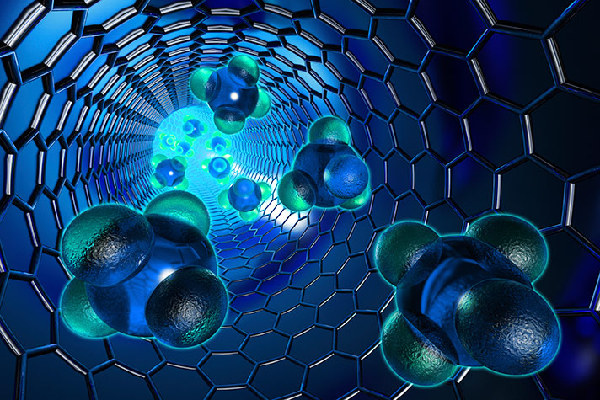Using pesticides to battle harmful bacteria that attack fruit and vegetables has its downside, releasing harmful chemicals onto the crops and into the environment. Scientists at the North Carolina State University say they may be able to replace those chemicals with a new type of eco-friendly nanoparticles.

Large farms use various chemicals to fight fungi and bacteria that attack crops, and others such as e. coli that are harmful to humans.
Among the most potent elements of modern pesticides - and even some antibiotics - are silver-based nanoparticles, which attach to microbes and destroy them. But as those nanoparticles degrade, they release the silver from their metallic core, which may be harmful.
“The effects are not, potentially maybe not so good for environment or human ingestion, so the problem is how do you potentially remove that danger from engineered nanomaterials,” said Orlin Velev, a professor of chemical and biomolecular engineering.
Velev and Ph.D. student Alexander Richter discovered that silver-based nanoparticles can be replaced with non-harmful nanoparticles based on an organic polymer called lignin, naturally found in most plants.
Such nanoparticles, designated as EbNPs, also carry highly active silver ions that attach to and kill bacteria, but their core is biodegradable and not harmful to the environment.
“By doing so, we could actually make the nanoparticles keep their functionality but make them degradable while also reducing the amount of the silver core in the nanoparticle system,” Richter said.
Based on their research, Velev and Richter founded a start-up company that will continue developing the method for industrial-grade production.
“We believe that this can lead to a new generation of agricultural treatment products, that they're going to be more efficient, that they're going to use less chemicals, and that they're going to be more friendly toward the environment,” Velev said.
They say their biodegradable nanoparticles could also be used in consumer products such as disinfectants and personal hygiene items.
Vocabulary
nanoparticle:纳米粒子;纳米颗粒
polymer:[高分子] 聚合物
lignin:[木] 木质素
来源:VOA
编辑:丁一
上一篇 : Furniture Printed Out of Plastic Waste
下一篇 :
关注和订阅


电话:8610-84883645
传真:8610-84883500
Email: languagetips@chinadaily.com.cn